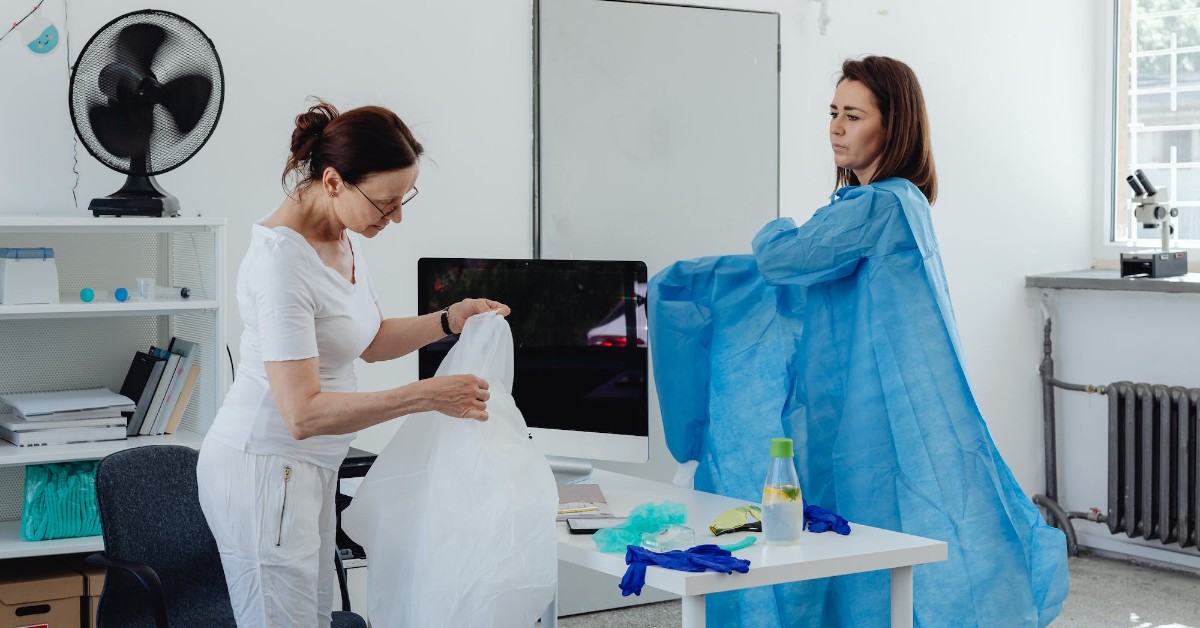
Unveiling the Advanced Clinical Skills of Certified Medical Assistants
Are you intrigued by the dynamic world of healthcare and aspiring to make a meaningful impact on patient care? If so, delving into the advanced clinical skills of certified medical assistants (CMAs) might be the perfect solution for you. As a CMA, you will find yourself at the intersection of medical expertise and compassionate patient care, playing a crucial role in the healthcare ecosystem.
The ever-evolving nature of the field ensures that each day brings new challenges and opportunities for growth. Whether you aspire to specialize in a particular medical discipline, contribute to cutting-edge healthcare technologies, or excel in patient-focused communication, the path of a certified medical assistant offers a rewarding and fulfilling career that goes beyond routine clinical tasks.
In this in-depth guide, the healthcare training professionals from Westchester School for Medical and Dental Assistants will unravel the vital role of clinical skills in healthcare settings, specific tasks and procedures CMAs are trained for, and how their expertise elevates healthcare delivery and improves patient outcomes.
The Importance of Clinical Skills in Patient Care
In the dynamic and fast-paced realm of healthcare, the significance of clinical skills cannot be overstated in ensuring the overall well-being of patients. CMAs embody a vital link in the healthcare chain, armed not only with administrative prowess but also with a versatile set of clinical skills that actively contribute to patient care and medical procedures. Their ability to seamlessly transition from administrative tasks to hands-on patient care showcases a level of versatility that is indispensable in delivering holistic healthcare.
These clinical skills extend far beyond the realm of paperwork. CMAs are trained to interpret complex medical charts, conduct thorough preliminary examinations, and provide immediate assistance during emergencies. Their comprehensive understanding of medical procedures allows them to act swiftly and decisively, making critical decisions in high-pressure situations. By actively participating in patient care, CMAs establish a bridge between administrative duties and the direct improvement of patient outcomes.
Diving into Specific Clinical Tasks and Techniques
Certified medical assistants embody a frontline presence in clinical settings. Proficient in administering tests, vaccinations, and checking vital signs, CMAs engage directly with patients, gaining an in-depth understanding of the clinical environment. Their role encompasses a diverse array of clinical procedures, including wound care, EKGs, and medication administration. This multifaceted skill set positions them as invaluable assets in diverse medical settings, ensuring that patients receive comprehensive and integrated care that addresses both their administrative and clinical needs.
Additionally, their adeptness in assisting with diagnostic procedures and therapeutic interventions demonstrates a level of involvement that transcends routine clinical tasks, fostering a patient-centered approach to healthcare.
Continuous Education and Certification: A Commitment to Proficiency
Becoming a certified medical assistant involves more than initial training; it requires a commitment to continuous education to maintain and advance proficiency. This commitment ensures that CMAs stay abreast of the latest medical advancements, adhere to updated protocols, and remain at the forefront of healthcare practices. Beyond routine tasks, continuous education allows CMAs to specialize in emerging healthcare areas, expanding their impact in specialized fields such as cardiology, pediatrics, or geriatrics. This dedication to learning not only keeps them adaptable in a constantly evolving healthcare landscape but also positions them as leaders in their field.
Moreover, continuous education for certified medical assistants (CMAs) extends beyond technical knowledge, encompassing soft skills and patient care expertise. As healthcare dynamics evolve, effective communication, empathy, and cultural competence become increasingly vital in delivering quality patient care. Ongoing education empowers CMAs to enhance their interpersonal and communication skills, again placing more emphasis on a patient-centric approach than traditionally.
Also, staying current on medical ethics and legal regulations is integral, ensuring that CMAs navigate complex healthcare scenarios with integrity and adherence to legal standards. By committing to continuous education, CMAs not only demonstrate their dedication to professional growth but also to elevating the overall quality of healthcare delivery. Continuous education and certification emerge as pillars of a CMA’s commitment to proficiency.
Elevating Healthcare Through Advanced Clinical Proficiency
Beyond administrative duties, CMAs emerge as adaptable professionals adept at seamlessly transitioning from logistical tasks to hands-on patient care. Having experienced CMAs with the capacity to interpret medical charts, conduct thorough examinations, and respond quickly to emergencies is a level of versatility paramount for comprehensive healthcare delivery.
CMAs with advanced clinical skills also serve as integral collaborators within interdisciplinary healthcare teams. Their seamless integration with physicians, nurses, and other professionals fosters a collaborative environment where information flows efficiently, resulting in more comprehensive and well-coordinated patient care. This collaborative synergy extends beyond traditional medical facilities, contributing to the development of a healthcare ecosystem that prioritizes responsiveness, adaptability, and continual improvement.
Essentially, certified medical assistants, through their advanced clinical proficiency, transcend conventional roles, embodying a commitment to excellence, compassion, and the advancement of holistic healthcare standards.
Contact us to learn more about our certified medical assistant program
The demand for certified professionals in both dental and medical assisting is thriving and Westchester School for Medical and Dental Assistants is here to help you start on your journey to a fulfilling career in the healthcare sector. The surge in the aging population forecasts a substantial growth in the field, outpacing many other occupations in the coming decade.
Beyond merely meeting the demand, your journey with us promises a blend of fascination and challenge. The skills and training acquired at our institution position you for a competitive salary in a professional setting.
Westchester School for Medical and Dental Assistants offers day and evening classes, allowing you to tailor your education to your schedule. If you’re interested in becoming a certified medical assistant, or dental assistant, or taking allied health courses (EKG technician certification training, phlebotomy certification, medical billing coding and training) contact us online today or call 914-682-9001.